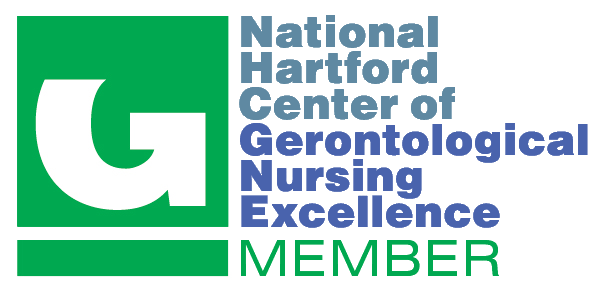Emergency Nurse Practitioner
Frequently Asked Questions
- Do I have to be a nurse to enter this specialty?
- I am an ICU nurse. Do I have to have Emergency Department experience?
- How many students do you accept each year?
- I have an MSN degree, is a Post-Master’s plan available?
- Is the specialty via the modified distance learning format?
- Can I work full-time and go to school full-time?
- Can I take the specialty part-time?
- What housing options are there?
- What is the curriculum like?
- How many times do I need to visit campus?
- What are the clinical requirements?
- How do you match me with clinical preceptors?
- Is travel required as part of my clinical placements?
- Do you have rolling, year-round admission?
- What will my credentials and certification be?
- What is the VUSN pass rate on the certification exam?
- Will I be able to get a job upon graduation?
- Can I earn a DNP degree?
Do I have to be a nurse to enter this specialty?
Yes. Applicants are required to have at least two years of current RN Experience, one full year of which must be as an RN in the Emergency Department.
I am an ICU nurse. Do I have to have Emergency Department experience?
Yes. While ICU nurses are detail-oriented and bring a wealth of complex nursing knowledge, we have found that the students who do best in this specialty build upon their own emergency department experiences. It is strongly recommended that in addition to the ED experience, students also complete Trauma Nursing Core Course (TNCC), Advanced Cardiac Life Support (ACLS) and Pediatric Advanced Life Support (PALS) courses prior to enrollment.
How many students do you accept each year?
It depends. While the number of students offered admission will vary each year based on many factors, we cap our class size at 12 students. This allows us to maximize our engagement with students during clinical experiences.
I have an MSN degree, is a Post-Master’s plan available?
Yes, Post-Master’s plans are available for full- or part-time study. Once admitted, a transcript review will be completed to identify gaps in education. In addition to the Emergency concentration content, you will only take the courses needed to sit for either the FNP or AG-ACNP certification exam. Campus visits are required, but clinicals can be completed in your hometown. It is strongly recommended that you apply to the Doctor of Nursing Practice (DNP) program and complete the post-master’s certificate as part of your DNP program of studies.
Is the specialty via the modified distance learning format?
This specialty is offered via the modified distance learning format, so RNs do not need to relocate to Nashville.
Can I work full-time and go to school full-time?
We strongly recommend that students do not attempt full-time school and full-time work. The few students who have successfully completed full-time school and work used flex time or accrued compensatory time to continue to work full-time. Some have used a Baylor plan (weekend shifts). The vast majority of our part-time students maintain full-time employment, and many of our full-time students continue to work in either part-time, weekend, or PRN positions.
Can I take the specialty part-time?
Yes. You can opt for a part-time curriculum plan, but please note that you are required to follow a pre-determined program of studies. Most courses are offered only once a year. (curriculum plan)
What housing options are there?
Our Admissions Office has a listing of hotels nearby the VUSN campus and many students choose to share hotel rooms to lower costs. Some students stay with local classmates.
What is the curriculum like?
All students – those living in Middle Tennessee and those further away– attend “block classes” on the Vanderbilt School of Nursing campus nine times over a one-year period. These block classes may last from two- to five-day periods. During block visits, students participate in skills labs, high-fidelity simulations, conferences and classroom learning. In between these “block class” periods, students living locally have the option to attend weekly classes on campus, or to join with the distance students for synchronous or asynchronous access to online lectures and web based learning activities. You will be in continuous contact with your professors throughout the program and in between sessions.
How many times do I need to visit campus?
Depending on your enrollment status (full- vs. part-time), you will be required to come to campus anywhere between 2-4 times a semester with each intensive block lasting anywhere from 2-5 days. Dates for all required on-campus intensives are available prior to the start of classes so that you can plan accordingly to maintain a work-school-personal life balance. (sample schedule)
What are the clinical requirements of this specialty?
There are a total of 1190 hours, including rotations in emergency departments and urgent care clinics, out-patient clinics and in-patient specialty services.
How do you match me with clinical preceptors?
The key to a student’s success is a clinical placement with a qualified preceptor who is supporting and willing to mentor the student. We view clinical placements as a required and integral part of your education. Faculty work diligently to match you with appropriate preceptors so you can learn from clinical mentors and start applying your new skills and knowledge. We make every reasonable effort to accommodate a student’s placement request. Your specialty director will provide more information to assist you.
Is travel required as part of my clinical placements?
Travel is often a requirement of the specialty, as we strive to give the student a vast array of clinical experiences to enrich the student experience. (sample block schedule).
Do you have rolling, year-round admission?
No. Applications are accepted for a priority review which begins September 1 for admissions to the class starting the following Fall. We continue to accept and review applications until the classes are full.
What will my credentials and certifications be?
Graduation from this MSN specialty prepares you to take the Family Nurse Practitioner national certification exams, offered by the American Nurses Credentialing Center and the American Academy of Nurse Practitioners , as well as the Emergency Nurse Practitioner national certification exam offered by the American Academy of Nurse Practitioners. Passage of the exams is required in most states to obtain a license as an advanced practice nurse.
What is the VUSN student pass rate on the certification exams?
Everyone will be well prepared for the certification exams as our students typically score well above national averages on these exams. First time pass rates for VUSN graduates are available here https://nursing.vanderbilt.edu/msn/exam_rates.php .
Will I be able to get a job upon graduation?
Some estimates suggest that the number of emergency department visits have increased more than 20 percent in the last decade. So it’s not surprising that our Emergency Nurse Practitioner graduates are sought-after emergency departments, urgent care clinics and health systems employers. We get positive employer feedback about the depth and breadth of skill our graduates contribute.
Can I earn a DNP degree?
Yes! Our both the MSN and Post-master’s certificate programs are designed for you to seamlessly transition to our DNP program. After successful completion of one semester of the specialty year curriculum, you complete an abbreviated application to indicate your interest in progressing to the DNP program; no additional application fee is required. Either you can progress directly into the DNP program or you can take a gap year to work as an APRN before starting the DNP program. The advantage of earning the MSN degree before the DNP degree is that you will be able to work as an APRN during your DNP program. The DNP program is designed for APRNs who are working full or part time. See DNP program details.




